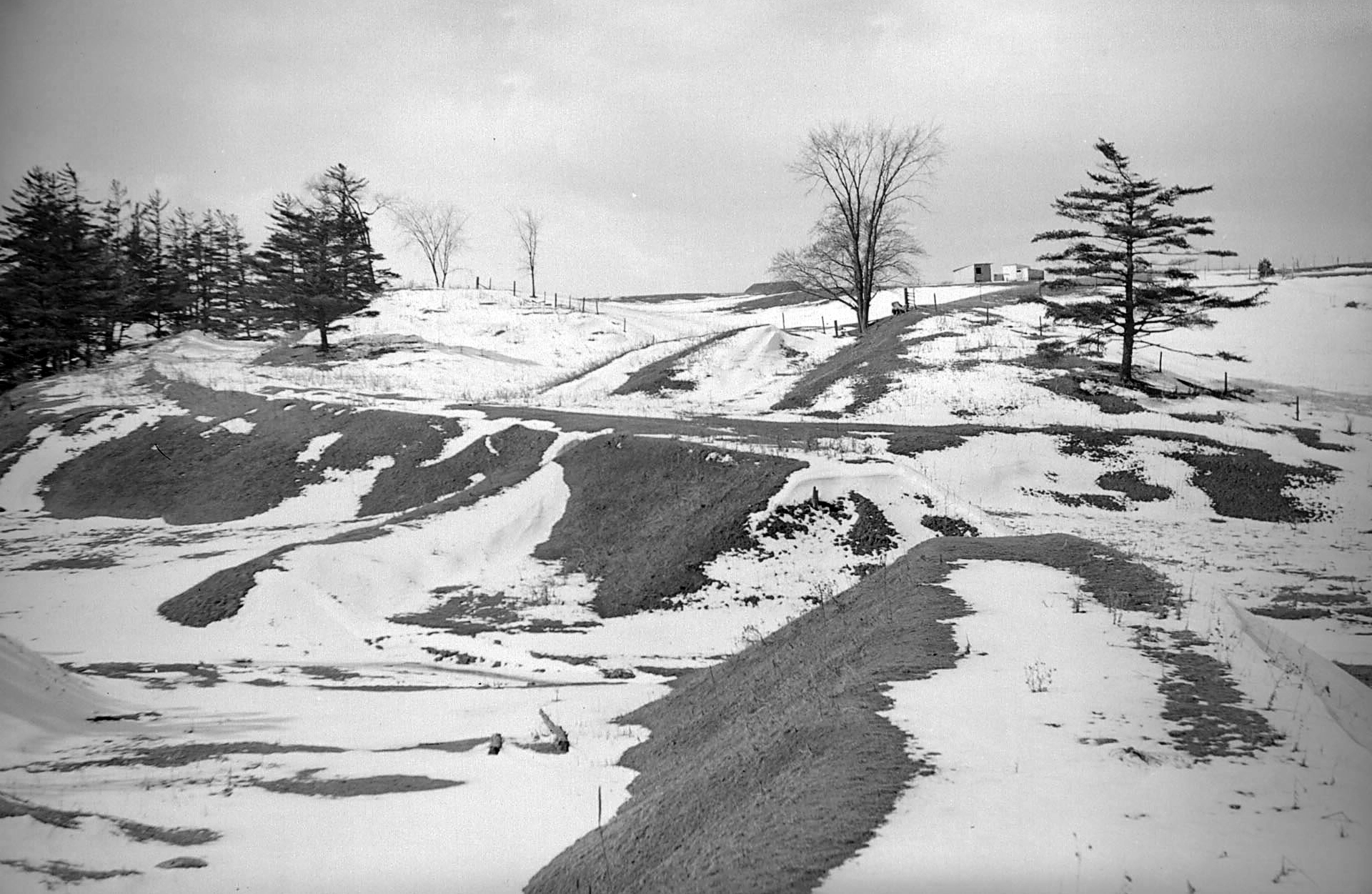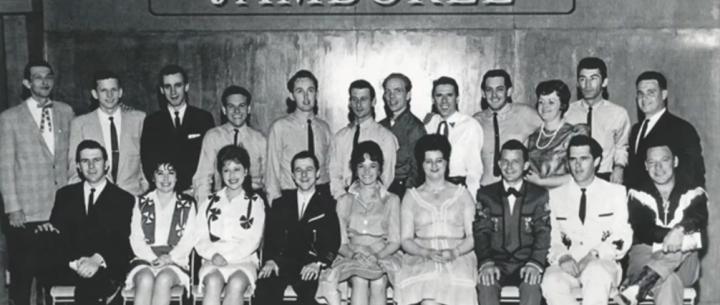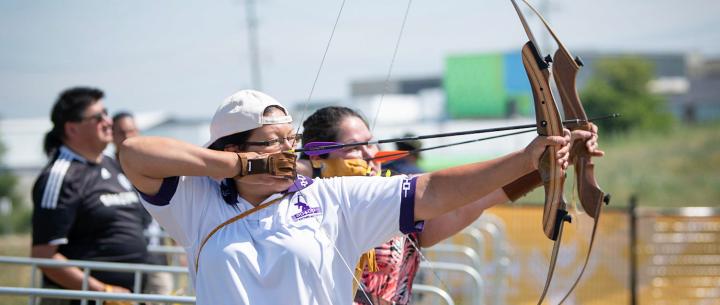Getting goods to market was a constant challenge for Downsview farmers in the years before Confederation. Roads were unpaved and their carts and wagons would get bogged down in the muck when it rained or during the spring thaw.
To alleviate the problem, a plank road was built in 1851 on what today is Dufferin Street, but was then known as the Gore Vaughn Road. White pine planks were laid on the southbound lane to accommodate farmers on their way to Toronto. The roadbed consisted of 16 inches of boards layered on top of eachother, held in place by four foot-long spikes. Still, the planks were unstable and proved to be dangerous for the carts and for the horses pulling them.

Two toll gates were set up, one at Wilson, the other at Sheppard West, and farmers were expected to pay what they considered to be exorbitant tolls to use the new road (see below). The gates were finally closed in 1891, as farmers found the railroad to be a more reliable and safer way of getting their goods to the big city.
| Under the Authority of Parliament, The Gore and Vaughn Plank Road rate of tolls to be collected thereon for each time passing whether loaded or otherwise: | |
| for every Vehicle drawn by two Horses or Other Cattle | 6 pennies |
| for every additional horse or beast | 2 pennies |
| for every Vehicle drawn by one horse | 3 pennies |
| for every Horse Ass or Mule | 2 pennies |
| for every score of Neat Cattle | 1 penny |
| for every score of Sheep or Swine | 1 penny |
| By order of Directors—January 1, 1851 | |
More Stories

Music in Downsview
Everyone knows that SARSStock, featuring the Rolling Stones, AC-DC, Rush and others, took place in Downsview. But few are aware that Downsview is also notable for once having Canada’s largest nightclub and an auditorium featuring Toronto’s biggest bands.

2018 Masters Indigenous Games
Inter-tribal athletics competitions have been a meaningful part of Indigenous peoples’ way of life for millennia, and that tradition continues into the present day. The City of Toronto played host to the 2018 Masters Indigenous Games on July 13-15, which centred around a specially created “Cultural Village” at Downsview Park
